

If you’re heading to the airport this week, be prepared to be patient. The current federal government shutdown has begun to cause an increasing number of flight cancellations and delays.
After weeks of air traffic controllers working without pay, the Federal Aviation Administration on Friday night reported an increase in the number of employees left without work, something aviation industry leaders had feared since the shutdown began.
Heading into the weekend, nearly half of the FAA’s major air traffic control facilities were understaffed, the agency reported. In the critical New York City region, about 8 in 10 workers were absent Friday night.
Staff shortages quickly contributed to massive travel disruptions.
At New York’s LaGuardia Airport (LGA), more than half of all departures on Friday were delayed, according to FlightAware.
About 40% of flights from nearby Newark Liberty International Airport (EWR) and John F. Kennedy International Airport (JFK) were delayed Friday.
Government and airline industry leaders insist that this staffing shortage will not jeopardize the safety of travelers. But with fewer workers, the FAA is reducing the flow of planes to reduce safety risks.
That means flight delays. And they were likely to extend into the weekend: As of 11 a.m. EDT on Saturday, major FAA facilities from Atlanta to Philadelphia, Dallas and Houston were short of staff, the agency reported.
“After 31 days without pay, air traffic controllers are under immense stress and fatigue,” the FAA said in a statement Friday night.
Reward your inbox with TPG’s daily newsletter
Join over 700,000 readers to receive breaking news, in-depth guides, and exclusive offers from TPG experts.
Since the lockdown began on October 1, there have been widespread fears that unpaid weeks could eventually lead to an increase in FAA and TSA workers who were out of work, something that affected air travel during the last extended shutdown in early 2019.
Those problems appeared to increase this week, after workers lost their first full paycheck and storms hit the East Coast in recent days, worsening travel headaches for passengers.
Related: The US government is closed: here are the impacts on travel
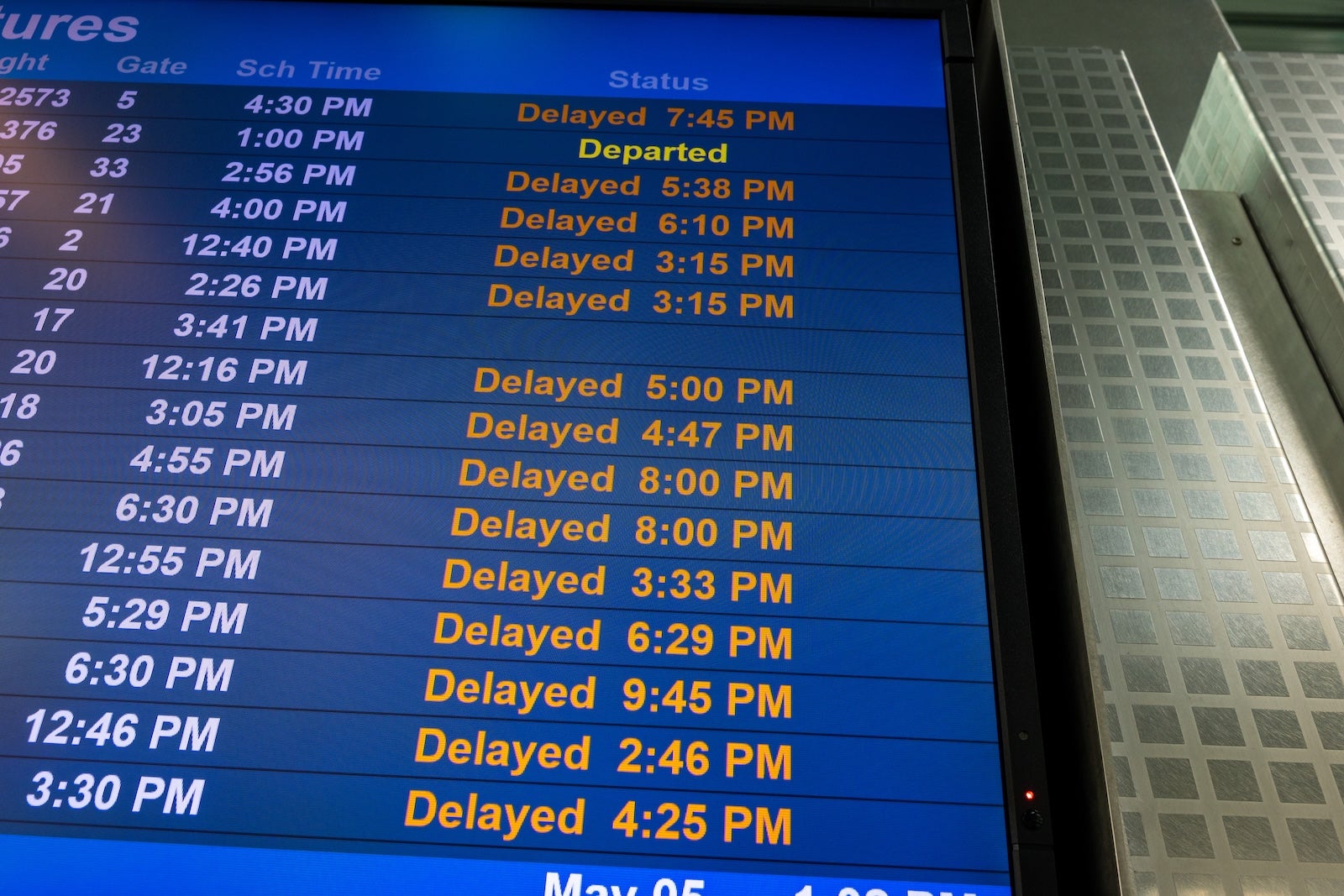
This week, the head of the country’s main air traffic controllers union warned that air travel problems were unlikely to improve until the government reopens.
“The problems are increasing daily,” Nick Daniels, president of the National Air Traffic Controllers Association, said at a news conference Tuesday.
What about TSA checkpoints?
Like air traffic controllers, Transportation Security Administration officers work without pay.
So far, checkpoints have been “minimally impacted” across the country, the agency told TPG on Thursday.
However, “occasional delays at some security checkpoints are to be expected,” a spokesperson said. “The longer the shutdown lasts, the more severe the impact will be on our TSA workforce.”
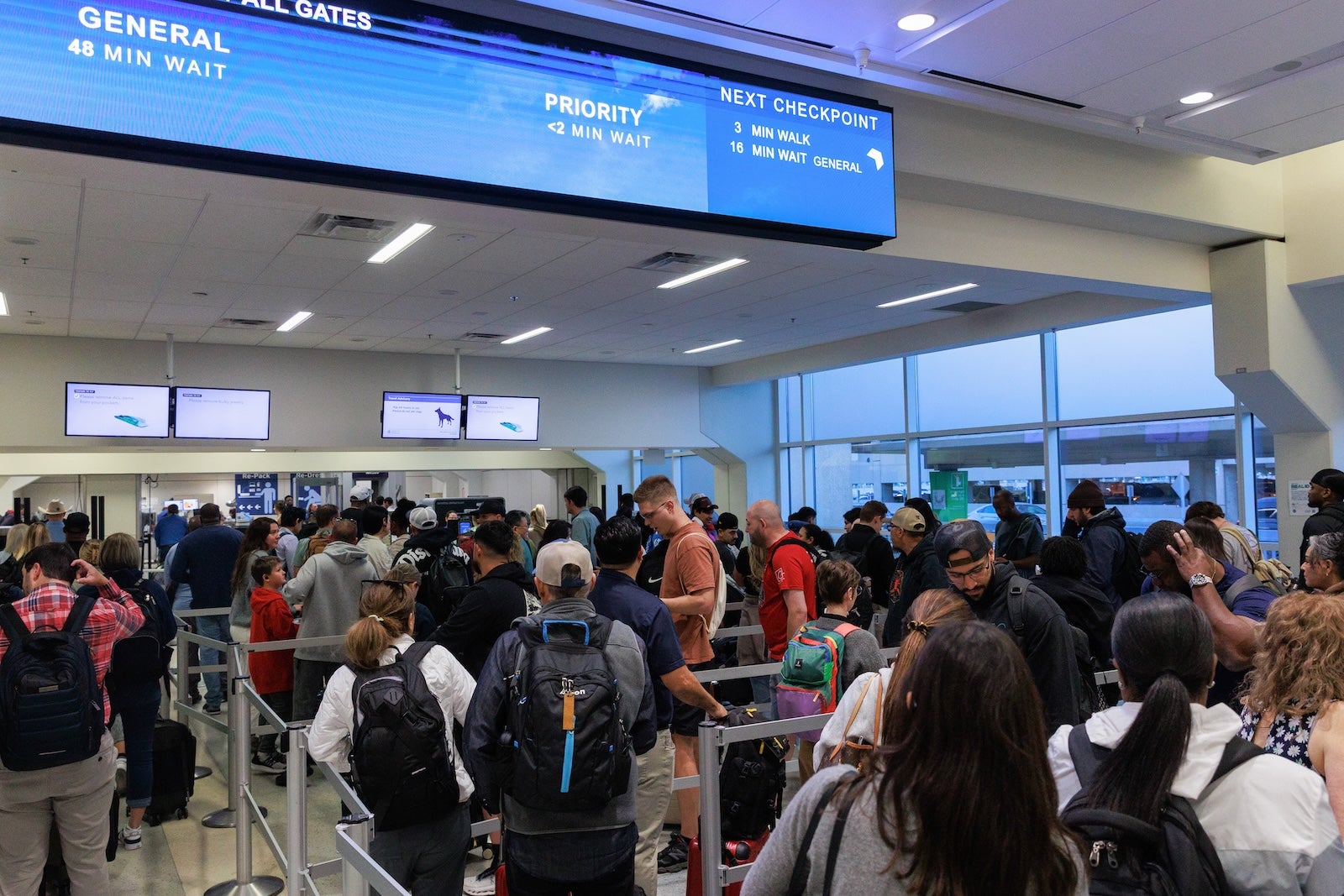
Above providing meals For critical aviation workers, airlines are making some changes to help travelers navigate airports more easily.
Delta Air Lines said its employees were helping with logistics at TSA checkpoints to free up certified TSA screeners to process customers.
The airline also noted that its corporate employees were helping customers navigate the lobby of its Hartsfield-Jackson Atlanta International Airport (ATL) mega-hub.
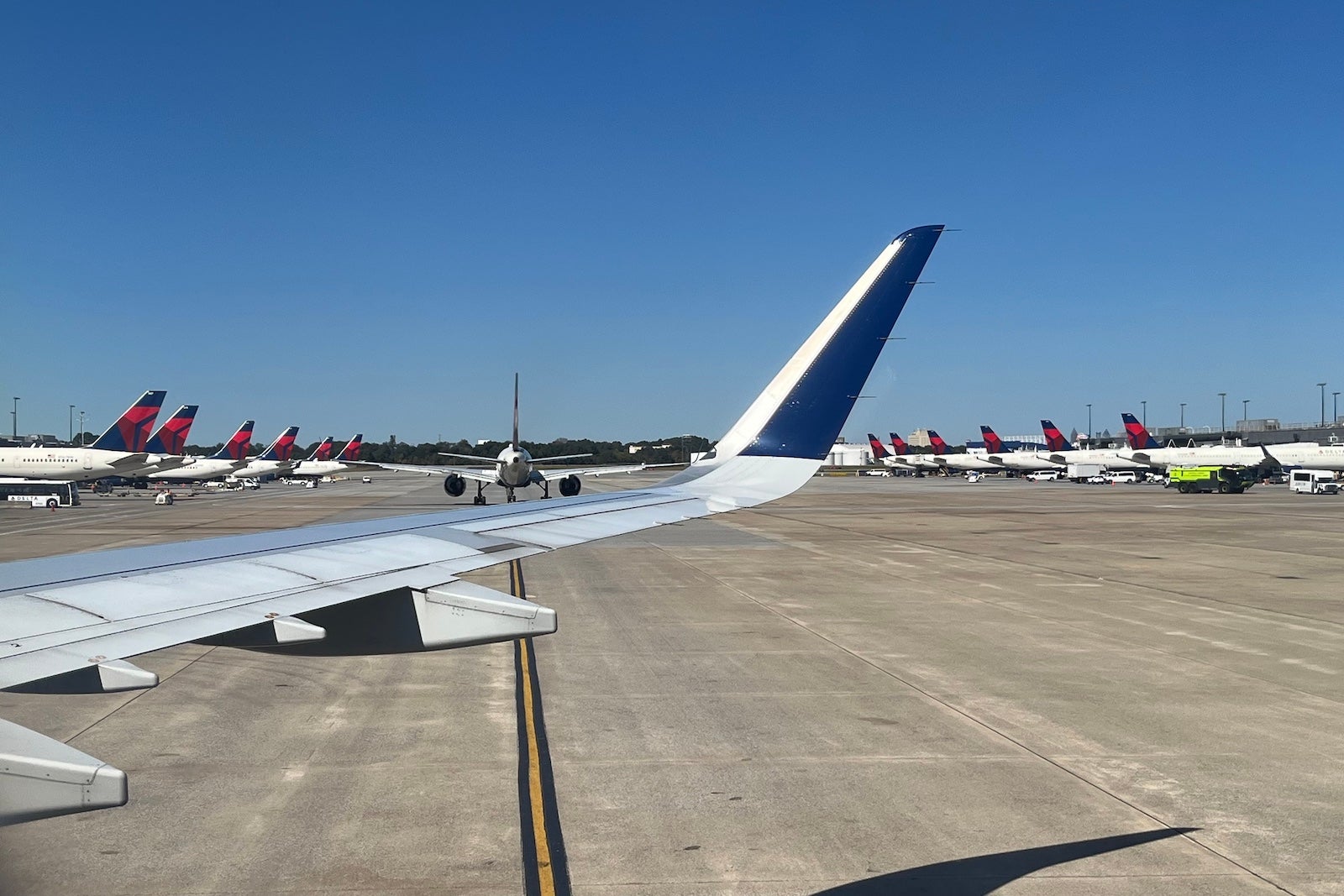
Delta closes special security entrances for business class
One significant change that some Delta customers will notice: Due to concerns about TSA staffing, the airline has temporarily closed its semi-private security checkpoints for Delta One customers at JFK and LAX.
Tips for traveling during the government shutdown
With no clear indication of when the government shutdown might end, here are some tips for flying, whether you’re traveling this week or booking flights for the holidays.
Consider arriving at the airport a little early.
The TSA continues to recommend travelers arrive at the airport at least 2 to 2 1/2 hours before their flight. This is more or less in line with its normal orientation.
My advice: arrive a little earlier than usual. Maybe add 20 or 30 minutes to your normal airport routine, whether you use the standard lanes or have TSA Precheck access, and whether you are a “three hours early” traveler or someone who tends to cut it short.
It’s official: Travelers will no longer have to take off their shoes at TSA checkpoints
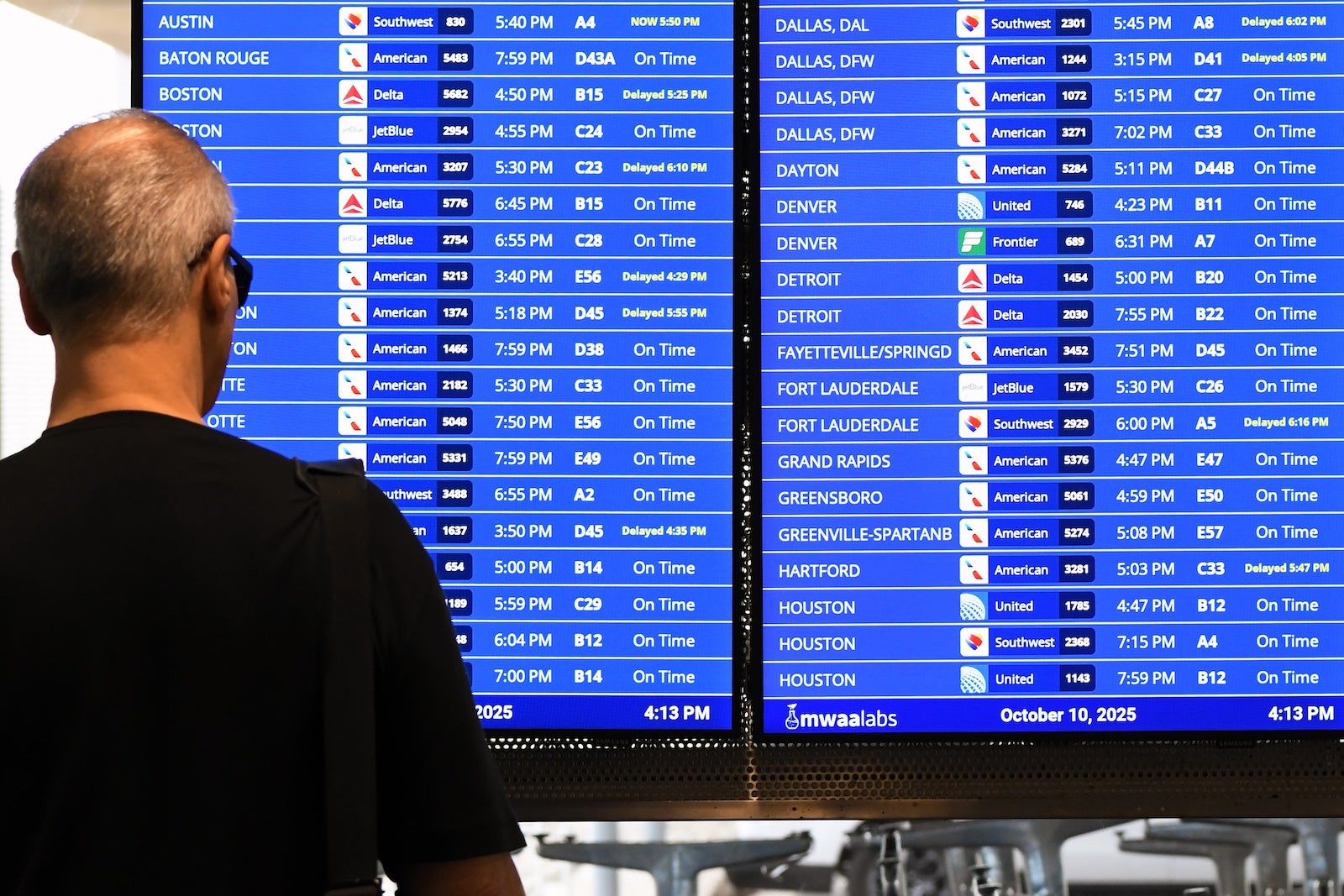
Book non-stop flights or longer connections, if you can
If you are booking travel in the next few weeks, I would opt for a non-stop flight if possible.
Flight cancellation rates in October have been remarkably low: just 0.3% of all flights aboard U.S. airlines, according to FlightAware. That’s better than what we saw in September, when the government was open.
However, delays remain a very real concern.
If you can’t fly non-stop, I would avoid that tight 40 minute connection if you can. After all, a 45-minute delay becomes a much bigger problem if it causes you to miss your connecting flight.
Prepare for a longer wait on the plane
Load up the iPad with more shows, download that extra podcast, and bring a bottle of water. The biggest impact customers are likely to see from air traffic control-related delays is longer taxi times or additional time in a holding pattern before landing.
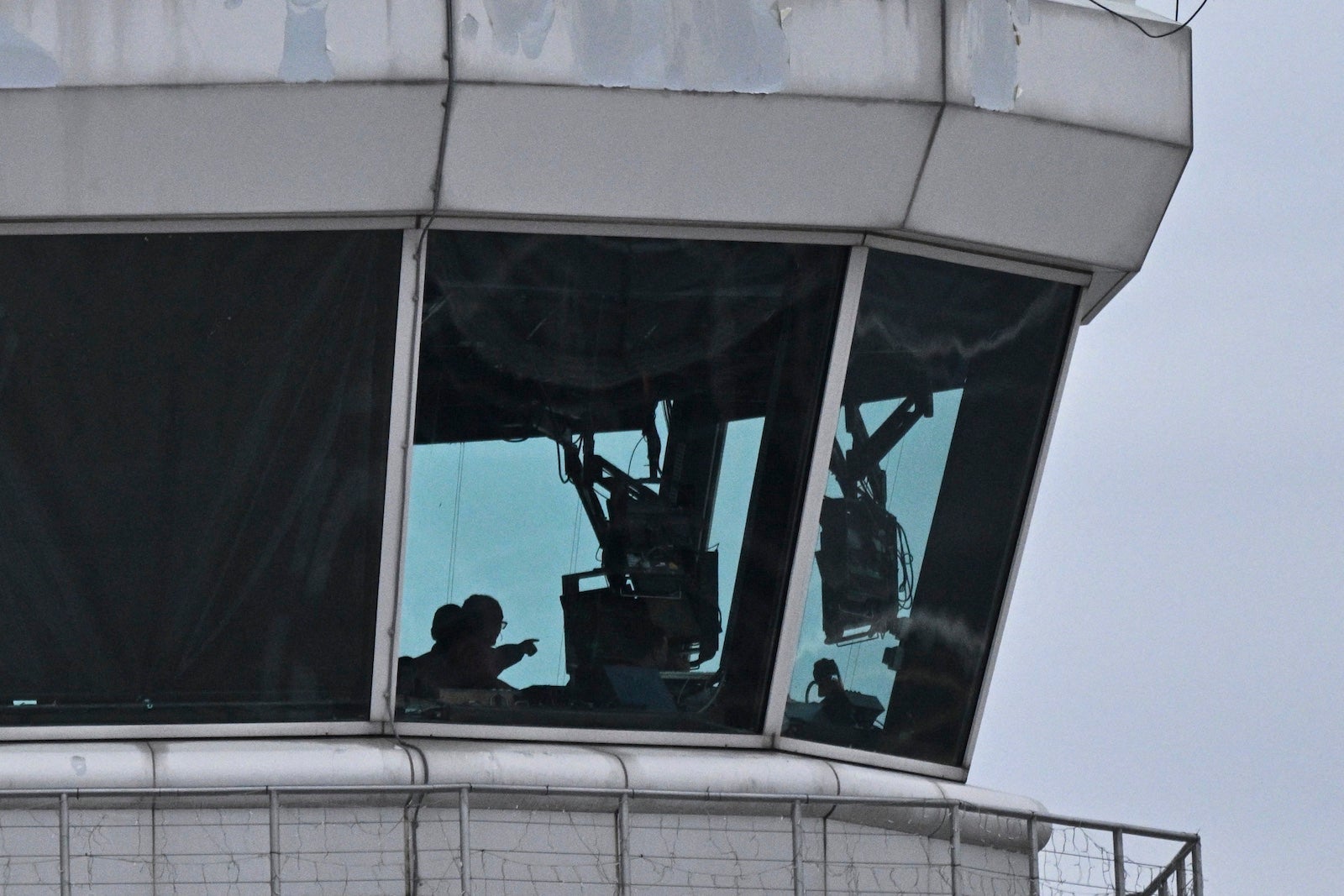
Have the supplies, entertainment, battery life, and snacks you need to be prepared if a two-hour flight turns into 3 1/2 hours on board the plane.
Stay glued to your airline app
Keep an eye out for opportunities to change to a new itinerary or take advantage of a travel advisory if an airline provides you with additional flexibility. If problems arise, you may be able to make all the necessary changes with a few taps on their mobile app.
Read more: Flight Canceled or delayed? Here’s what to do next
Book with a credit card that has travel insurance.
Airlines are not likely to foot the bill if you are stranded due to the government shutdown.
That means you’ll probably be hit with that unexpected hotel night or dinner out if you’re late overnight.
This is where a travel credit card that includes travel insurance protections can be helpful and help you get reimbursed for the costs of unplanned travel delays, something to consider if you’re booking a holiday trip.
Looking forward
These growing concerns about air travel and closures come less than four weeks before the start of the Thanksgiving travel rush.
Keep in mind that the Sunday after Thanksgiving is usually one of the busiest tourist days of the entire year.
“We are expecting a record holiday travel season. However, if the shutdown continues much longer, Americans will have to be patient and prepared for more delays, unfortunately,” Airlines for America, a lobbying group for major U.S. airlines, said in a statement Thursday.
Starting Saturday, the US Travel Association reported that the closure has cost the U.S. tourism industry at least $4.3 billion in lost revenue.
Related reading: